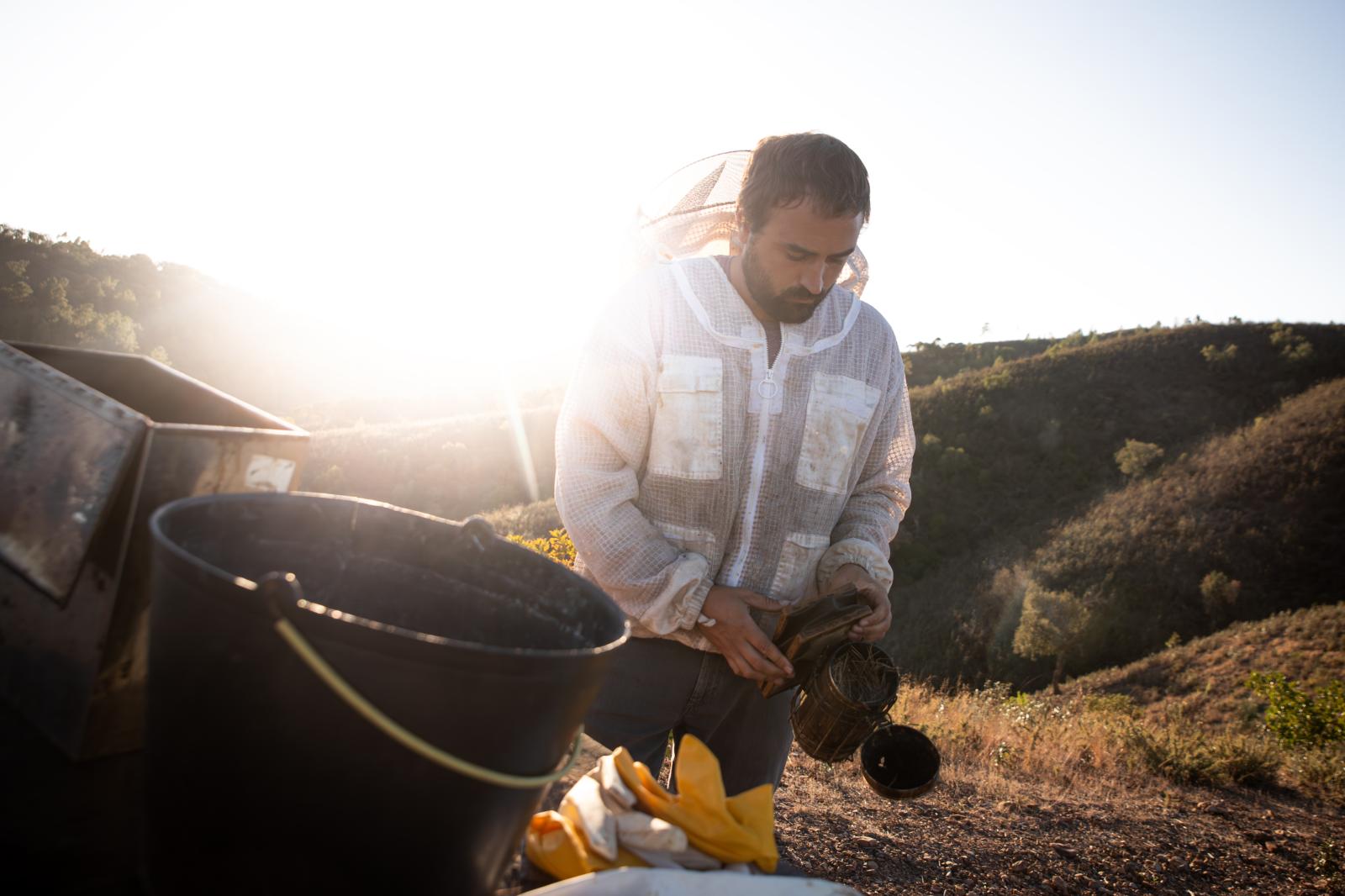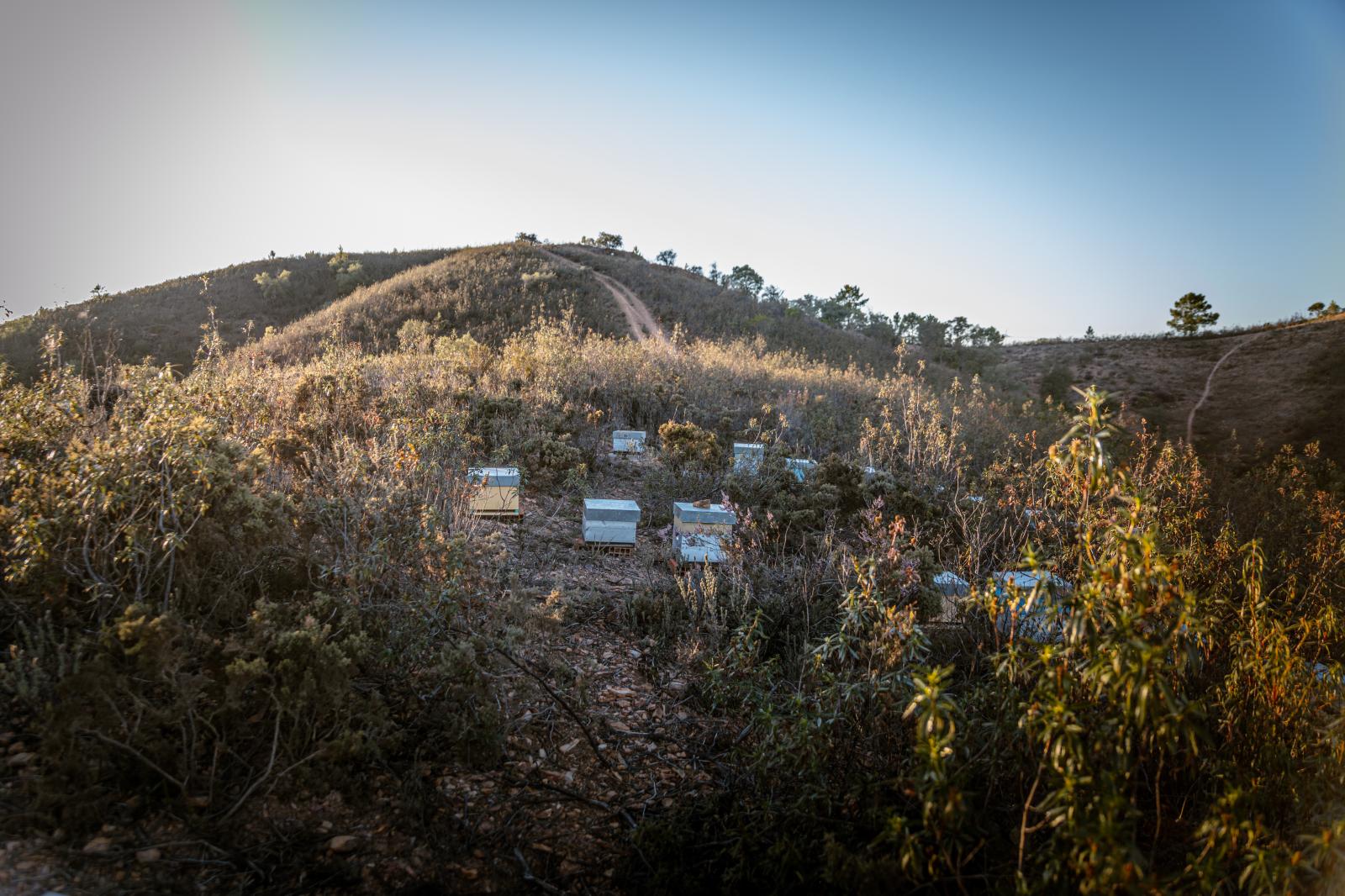Private Project
Portuguese Beekeepers
Summary
In Portugal, beekeeping is overshadowed by other agricultural sectors and lacks government support. Large agricultural firms, not beekeepers, benefit from "pollination subsidies". Environmental issues, like habitat degradation and pesticide use, pose additional challenges. Despite this, beekeepers like Tomás Brito persist, highlighting the need to value these vital pollinators and their protectors.
Interestingly, it's the large agricultural companies, not the beekeepers, that benefit from the "pollination subsidy" for the crucial work bees perform. This surprising revelation underscores the economic challenges faced by beekeepers.
Environmental issues further compound these challenges. Practices such as intensive agriculture and soil plowing, driven by financial incentives, degrade bee habitats and threaten the biodiversity upon which bees depend. Pesticides, like neonicotinoids, disrupt bee behavior, impairing their ability to navigate and pollinate.
Amid these challenges, individuals like Tomás Brito stand out. A professional beekeeper, Tomás embarked on his journey during his studies at the University of Algarve. Today, he navigates the financial and environmental hurdles of beekeeping with unwavering dedication. Tomás emphasizes the disparity in treatment between farmers and beekeepers when it comes to community subsidies. Despite these obstacles, his journey exemplifies a commitment to protecting these vital pollinators and the biodiversity they support.
Bees play a critical role in our ecosystems and food production. Their decline could have a devastating impact on the entire food chain and biodiversity. This underscores the need to reassess how we value these small guardians of the environment and those dedicated to their protection. The silent buzz of bees is an echo of the vitality of nature we all share, deserving our attention and support.
1,135


















